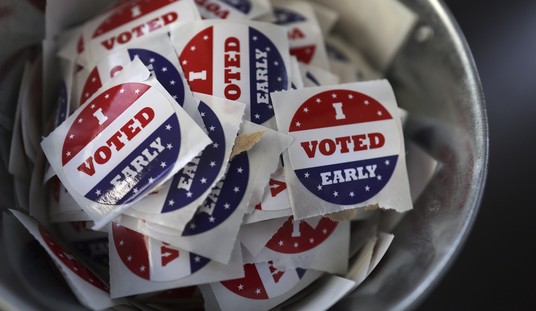A political danger for presidents is that precisely because the public pays little attention to foreign policy until a explosion occurs (usually metaphoric), the White House does not get public pressure to improve the situation as it does with, say, a failing domestic economy. As the economy gets worse and worse, the public complains more and more, and the White House is on political alert to try to do something about it, usually. However, the political danger of a foreign-policy failure tends to just fall out of the politically clear blue sky on an inattentive White House.
But the palpable, increasingly manifest weakening of the American position -- from Russia to China/Taiwan to Turkey to Saudi Arabia to the Middle East peace process to Pakistan and Afghanistan to Mexico and Latin America --needs only a spark to reveal to the American public that in the last three years, we have experienced the most sustained weakening of our international interests, values and positions since the attack on Pearl Harbor.
Just last week, the Obama administration sustained three self-inflicted international reversals in Russia, China/Taiwan and the U.N., regarding the Palestinian/Israeli peace process.
Consider Russia. Russian President Dmitri Medvedev announced that he was stepping aside to permit Vladimir Putin to run (essentially unopposed) for president next year. That means that Putin is likely to be president of Russia for 12 more years because, constitutionally, Putin can now serve two more consecutive six-year terms.
Recommended
Unfortunately, President Obama had placed a huge, strategic bet that Putin was not coming back. As CNN reported on July 6, 2009: "In an interview with the Associated Press late last week, Obama seemed to be trying to work through the sticking points by driving a bit of a wedge between Medvedev and Putin. 'The old Cold War approaches to U.S.-Russia relations is outdated and that it's time to move forward in a different direction,' said Obama. 'I think Medvedev understands that. I think Putin has one foot in the old ways of doing business and one foot in the new.'"
It doesn't take much to imagine where Putin, the former KGB operative, will place one of those booted feet when he gets back in office. That foot placement will be felt hard in Washington, D.C.
As Foreign Affairs magazine described it a few days ago, "Putin's return is likely to complicate Russia's thawing relations with the West, particularly the U.S.-Russia 'reset' begun in 2009. ... 'If Putin returns then I guess we will need another reset,' joked a former high-ranking Kremlin official earlier this month. The White House said on Saturday that it would keep making progress in the reset regardless of who the next Russian president was."
It's not just that the president has given away a lot to gain Medvedev's approval (now of no value to us) by: 1) giving up our anti-missile defensive commitment to our friends Poland and the Czech Republic and 2) publicly attacking the corruption of Putin's associates, who dabbling in domestic Russian politics, tried to make Medvedev look stronger to his fellow Russians. It's hard enough for an American president to dabble in American politics. Most shrewd American presidents resisted the temptation that Obama couldn't.
But at a far more strategic level, by personally insulting Putin and a large part of the Russian elite that are his allies, the White House has undercut our effort to contain China by triangulating with Russia in the same way that Nixon contained Soviet Russia by triangulating with Mao's China in the 1970s.
As Dimitri K. Simes, the leading expert on Russia and president of the Center for the National Interest, put it recently, "The United States must have better relations with Russia than Russia has with China." Oops! President Obama's personally implemented, failed Medvedev-centric Russian policy has turned Putin -- a George W. Bush friend -- into a personal enemy and a lost strategic asset. Only a new American president can start repairing that vital Russian link in our China-containment policy.
But the danger of American weakness with China, made even more difficult without Russia's strong East Asia voice supporting us, was painfully brought home last week when it was announced that we would comply with the demands of China and not supply our ally Taiwan with new F-16s.
Even the neo-liberal London Economist accused the Obama administration of practicing "appeasement" with China: "Appeasement would also probably increase China's appetite for regional domination ...To Chinese military planners, Taiwan is a potential base from which to push out into the Pacific. ... Strong American backing for Taiwan has served the region well so far. ... To abandon Taiwan now would bring out the worst in China, and lead the region's democracies to worry that America might be willing to let them swing, too. That is why, as long as China insists on the right to use force in Taiwan, America should continue to support the island."
When presidential-led U.S. foreign policy is seen as conspicuously and dangerously weak by even liberal European opinion, President Obama runs the risk that world liberal journalistic opinion may provide critical -- and believable -- public support for what will surely be a major Republican campaign charge in next year's presidential race.

























Join the conversation as a VIP Member